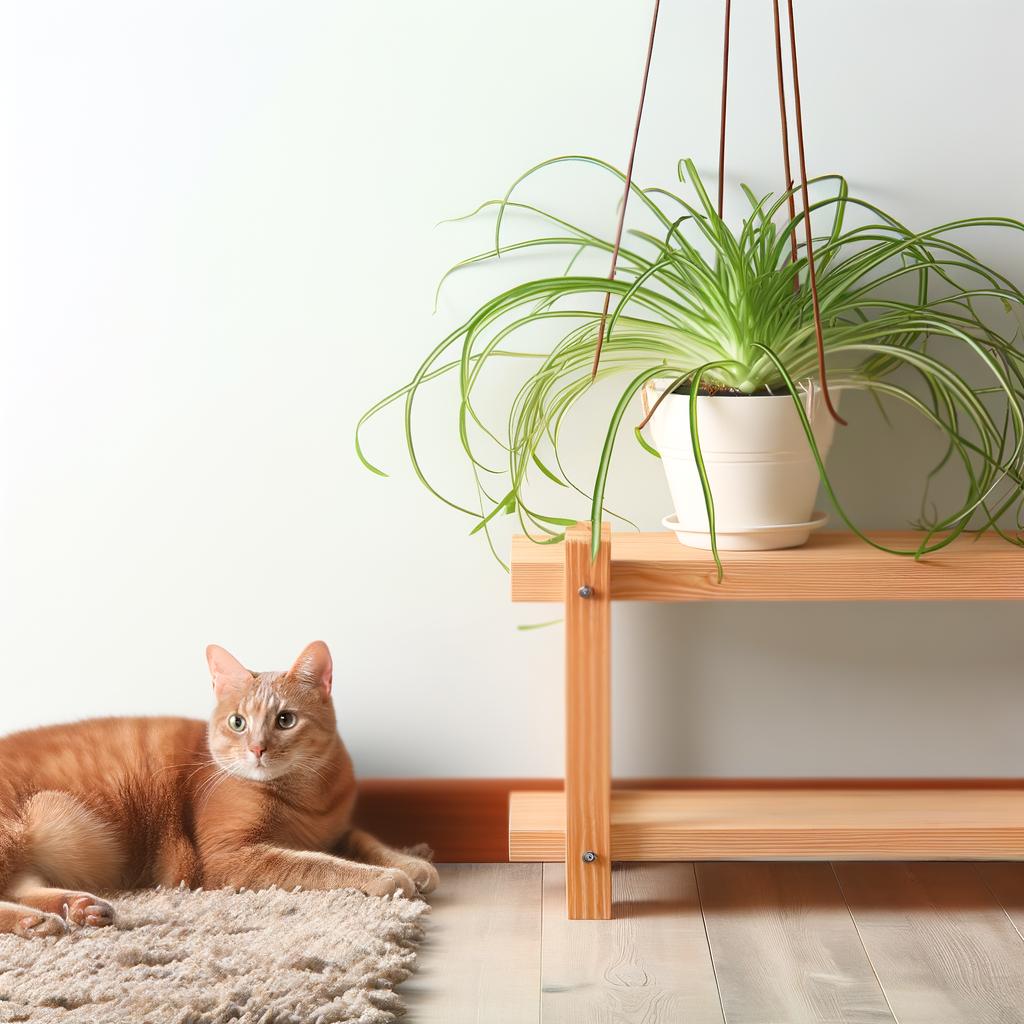Good news for pet owners! Spider plants are completely safe for cats and dogs. Learn about their non-toxic properties and how to create a pet-friendly environment.

Spider Plant Pet Safety
Discover why spider plants are considered one of the safest houseplants for pets. Learn how to create a harmonious environment where your cats, dogs, and plants can coexist safely.
Pet-Safe Houseplants
Spider plants are widely recognized as one of the safest houseplants for homes with pets. Their non-toxic nature makes them an excellent choice for pet owners who want to enjoy the benefits of indoor plants without worrying about their furry friends.
Are Spider Plants Safe for Pets?
Yes, spider plants are considered non-toxic to both cats and dogs. This makes them an excellent choice for pet owners who want to enjoy the beauty and air-purifying benefits of houseplants.
Safety Status:
- • Cats: Non-toxic and safe
- • Dogs: Non-toxic and safe
- • Birds: Generally safe
- • Small pets: Safe for hamsters, rabbits, etc.
- • ASPCA approved: Listed as non-toxic
Why Cats Love Spider Plants
Cats are particularly drawn to spider plants, and there are several reasons why they find them so appealing.
Cat Attraction Factors:
- • Grass-like texture: Similar to outdoor grass
- • Hanging leaves: Fun to bat at and play with
- • Movement: Leaves sway and catch attention
- • Accessibility: Easy to reach and interact with
- • Natural instinct: Cats are drawn to plant-like objects
Note: While spider plants are safe, excessive chewing can still cause mild stomach upset in some cats.
Potential Issues and Solutions
While spider plants are safe, there are some considerations for pet owners to keep in mind.
Common Concerns:
- • Mild stomach upset: Can occur with excessive consumption
- • Plant damage: Pets may chew or play with leaves
- • Soil ingestion: Pets might dig in potting soil
- • Fertilizer exposure: Chemical fertilizers can be harmful - see our fertilizer guide for pet-safe options
- • Pest treatments: Some treatments are toxic to pets
Creating a Pet-Friendly Environment
With some planning and precautions, you can create a harmonious environment where your pets and spider plants can coexist safely.
Safety Tips:
- • Elevated placement: Hang plants out of reach
- • Secure pots: Use heavy or secured containers
- • Natural fertilizers: Use pet-safe organic options - learn more in our fertilizer guide
- • Regular monitoring: Check for signs of damage
- • Alternative grass: Provide cat grass as distraction
Signs to Watch For
While spider plants are safe, it's important to monitor your pets for any unusual behavior or symptoms.
Warning Signs:
- • Excessive vomiting: More than occasional hairballs
- • Lethargy: Unusual tiredness or lack of energy
- • Loss of appetite: Refusing food for extended periods
- • Behavioral changes: Unusual aggression or anxiety
- • Digestive issues: Diarrhea or constipation
Important: If you notice any concerning symptoms, contact your veterinarian immediately.
Alternative Pet-Safe Plants
If you're looking to expand your pet-safe plant collection, there are many other options that are safe for cats and dogs.
Other Safe Options:
- • Boston Fern: Non-toxic and air-purifying
- • Parlor Palm: Safe and elegant
- • Bamboo Palm: Pet-friendly palm variety
- • African Violet: Safe flowering plant
- • Calathea: Beautiful and non-toxic
Enjoying Plants with Pets
Spider plants offer the perfect combination of beauty, air-purifying benefits, and pet safety. With proper placement and monitoring, you can enjoy the benefits of indoor plants while keeping your pets safe and happy.